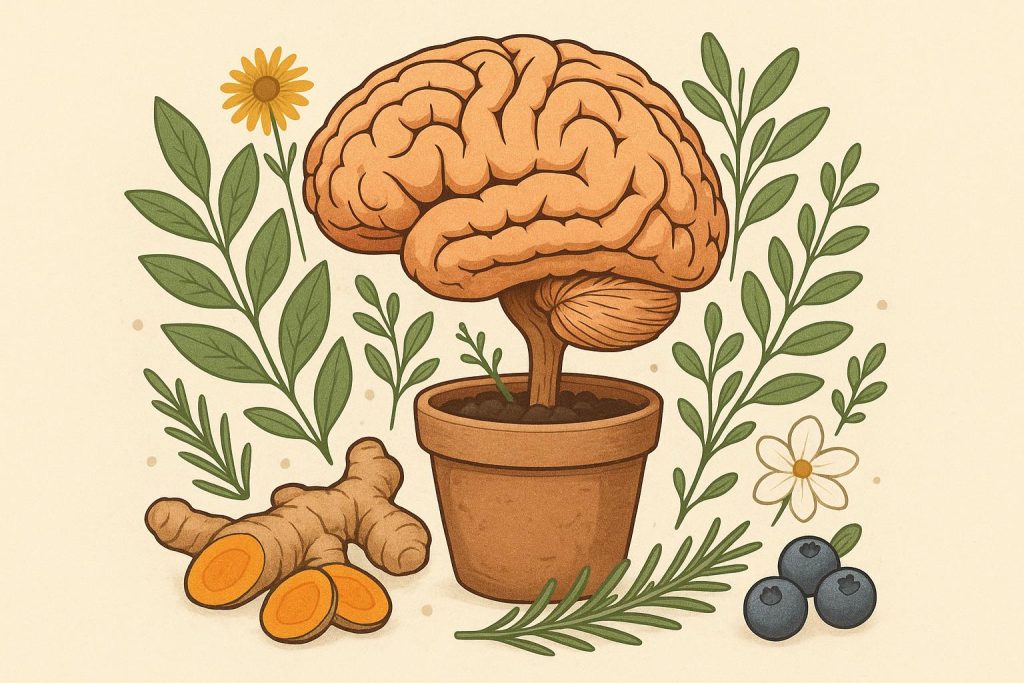Dr. Wayne Jones is a distinguished psychiatrist, researcher, and integrative health consultant recognized for his leadership in advancing mental health and cognitive wellness. With over five decades of experience, Dr. Wayne Jones has contributed to the fields of psychiatry and psychopharmacology through clinical research, education, and public outreach. As chairman of the department of psychiatry and chief of staff at Richardson Medical Center, he guided innovation in patient care while also directing the Phobia and Anxiety Center of the Southwest. Now focusing on integrative and functional health, Dr. Jones emphasizes natural approaches to well-being, including strategies to enhance cognitive health naturally. His extensive background in clinical practice, medical research, and community education supports his perspective on maintaining mental resilience and cognitive vitality throughout life.
Strategies to Enhance Cognitive Health Naturally
Cognitive health plays a crucial role in maintaining overall well-being, shaping how individuals think, learn, and remember. Research suggests that the brain can adapt and strengthen with consistent care, despite minor declines in mental sharpness that occur with age. Naturally boosting cognitive function comprises physical, mental, and emotional measures that nourish the brain and promote long-term health. Better cognitive health goes beyond avoiding decline to increasing resilience for daily living and long-term independence.
Physical activity remains one of the most potent influences on brain performance. Studies show that regular exercise improves blood flow to the brain, delivering oxygen and nutrients. It enhances memory and focus by stimulating the growth of new neurons and strengthening existing neural connections. Swimming, yoga, and brisk walking boost cardiovascular health and cognition. Moving regularly reduces stress chemicals that impair mental clarity, improving concentration and emotional balance.
Nutrition provides another foundation for preserving cognitive function. Getting enough fruits, vegetables, lean proteins, and healthy fats gives the brain the fuel it needs. Omega-3 fatty acids, found in salmon and mackerel, help brain cells and neurons communicate. Berry, leafy green, and nut antioxidants fight oxidative stress, which causes age-related memory loss. Hydration boosts mental performance because even modest dehydration slows processing and decision-making. A deliberate diet increases energy and cognition.
Sleep quality also influences brain performance in measurable ways. Deep sleep helps the brain consolidate memories and eliminate metabolic waste. Most individuals need seven to nine hours of sleep per night, and established sleep habits support the body’s rhythm. Restful sleep sharpens intellect and stabilizes mood, improving daytime attention and emotional control. A good night’s sleep improves focus and learning.
Mental exercise contributes significantly to long-term cognitive resilience. Puzzles, languages, and instruments help the brain build new connections and adapt to new obstacles. Neuroplasticity is the brain’s ability to strengthen through stimulation. Engaging in writing, reading, and other intellectually stimulating activities can help delay cognitive decline and maintain cognitive flexibility. Diversity in mental engagement fosters curiosity and activates different brain regions as much as consistency.
Social interaction also influences mental wellness by stimulating communication and emotional understanding. Conversations entail hearing, remembering, and interpretation, which engage multiple cognitive processes. Meaningful relationships reduce loneliness and stress that can damage the brain. Volunteering, group activities, and community events boost mental agility and emotional support. Social involvement affects brain health, demonstrating how emotional satisfaction influences cognition and encouraging interpersonal equilibrium.
Stress management plays a quiet yet crucial role in protecting the brain. When chronic stress is high, cortisol can impair memory and learning. Brain-calming practices, such as meditation, deep breathing, and mindfulness, help the brain focus and recover. Nature and music help relax and focus. Stress management improves emotional stability and brain performance, producing a healthier cognitive environment.
Environmental factors further shape brain performance. Spaces that promote organization, creativity, and natural light increase mood and focus. Fewer distractions and quiet thought help the mind reset throughout the day. Green areas and outdoor activities reduce mental tiredness and improve attentiveness. Mindful design is an underestimated yet important method for cognitive health because one’s surroundings can drain or help brain clarity.
The path to improved cognitive function lies not in a single intervention but in integrating multiple habits that sustain the brain over time. There is a growing awareness that cognitive health is developed rather than maintained. Natural brain adaptability urges a shift in mindset from perceiving cognitive decline as inevitable to acknowledging it as a daily choice. Cognitive enhancement, as a lifelong process, unlocks potential rather than averting loss.
About Dr. Wayne Jones
Dr. Wayne Jones is a board-certified psychiatrist and integrative health consultant with more than fifty years of experience in clinical practice, research, and education. He served as chairman of the department of psychiatry and chief of staff at Richardson Medical Center, and directed the Phobia and Anxiety Center of the Southwest. Among the first certified in clinical psychopharmacology, Dr. Jones contributed to multiple psychiatric studies and led educational initiatives across medical and community settings. His work continues to bridge traditional psychiatry with functional wellness and cognitive health.

